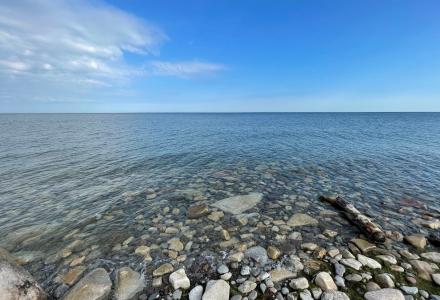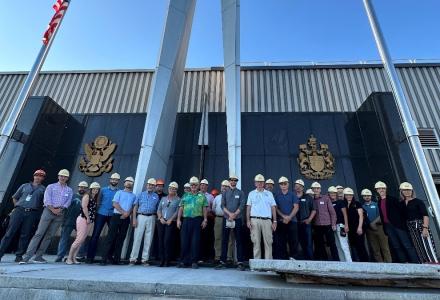
There are more than 180 nonnative species in the Great Lakes, and the rate of new ones entering the Great Lakes has slowed to a crawl since 2006. Still, those already in the water have been hitching rides with recreational boaters and kayakers. In Michigan, the MI Paddle Stewards program is trying to help change that by teaching kayakers, paddleboarders and canoeists how to clean their boats to prevent the spread.
Of nonnative species in the Great Lakes, about 50 are considered invasive. Invasive species – such as purple loosestrife, quagga mussels, sea lamprey or Phragmites – are plants and animals that aren’t native to the lakes and can have harmful effects on the environment, the economy and human health. Preventing or slowing their spread is the primary goal of MI Paddle Stewards, run by Michigan Sea Grant, as these invasive species can be moved within the same water body, or even survive on a boat or clothing materials as people move from one water body to another.
Paddle Stewards consists of a workshop session that explains how to prevent invasive species from spreading, said Mary Bohling, Michigan State University Extension educator. This involves thoroughly and effectively cleaning boats, equipment and clothing. The classes break down the steps and identify some easily overlooked aspects of deep cleans.
“We explain to (participants) where to look on the vessel and what to look for - any pooled water, or if there are any plants visible to remove,” Bohling said. “And not only to look on the vessel itself, such as all the hatches and places you may not think water can get, but also your other equipment like (your life jacket) paddles, shoes and clothing.”
Cleaning off boats and boards before moving them is doubly important to prevent unwanted plants and contaminated water from blowing off them while they’re being transported on the road, Bohling said. This can lead to invasive species getting established in ponds, ditches and creeks that they otherwise would have a hard time reaching.
In 2019, the workshops were held in-person, and featured a kit with hands-on cleaning protocols. Michigan Sea Grant shifted these online in 2020 due to the COVID-19 pandemic. The course is free and includes a cleaning kit that arrives in the mail. The kits contain a spray bottle with instructions on how to mix a cleaning solution as well as a checklist on a sticker to help remind people of steps to properly clean their boat.
Bohling said those interested can register for these pre-recorded online courses through the MI Paddle Stewards website. They cover the same ground as the in-person workshops held previously and can be viewed at the student’s own pace. For takers in 2020, the course expires on December 31. The online workshops will continue through 2021, Bohling said; signups for that year will begin in mid-January and remain open through December 31, 2021, even if in-person workshops resume. While the course is backed by Michigan Sea Grant, it’s also open to residents outside the state.
Bohling said they hope to return to in-person workshops once the pandemic subsides. But the online experiment has proved successful – about 150 people attended in-person workshops in 2019, but as of November 12 more than 220 people signed up for the online course.

Kevin Bunch is a writer-communications specialist at the IJC’s US Section office in Washington, D.C.




